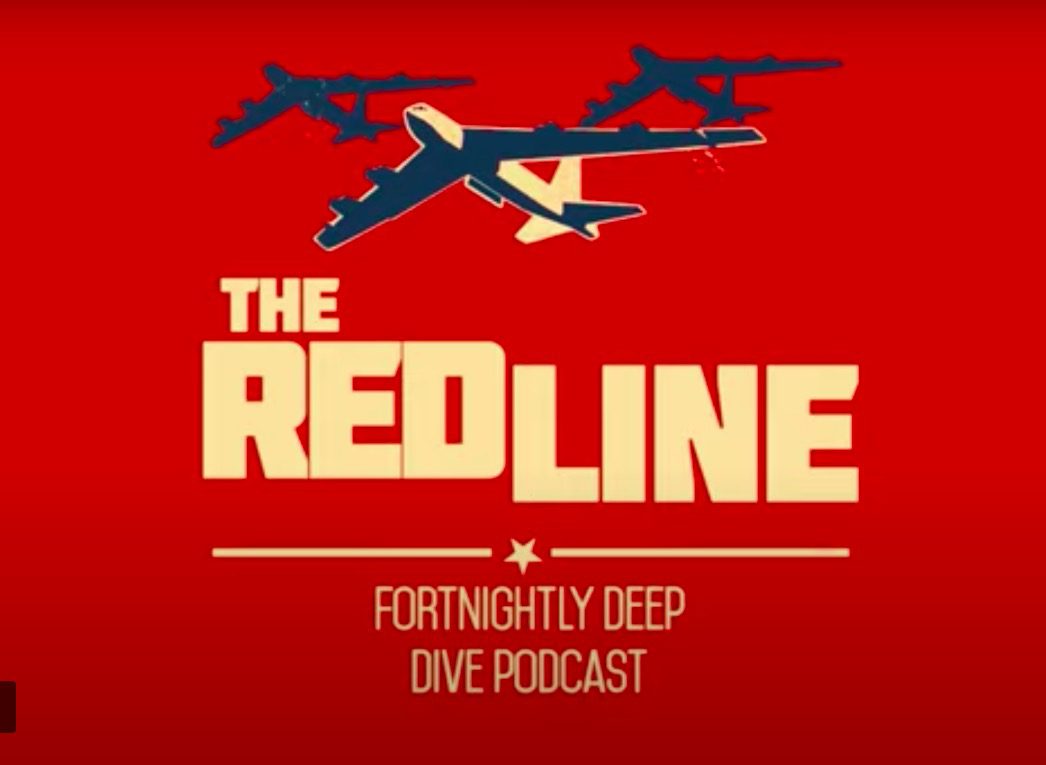
The Red Line, Episode 75- Human Trafficking: An Industry Lacking Conviction
Human trafficking has become the third largest industry in the black market but unlike guns or drugs, which see millions of convictions per year, human trafficking sees less than 0.5 per cent of cases prosecuted. So why is an industry that is so awful allowed to get away with so much, and what is preventing national governments from properly pursuing some of the world’s most appalling perpetrators? We sit down with an expert panel to figure out why.
Episode Overview:
Part 1: An Industry Lacking Conviction (5:38)
-
John Coyne addresses some of the myths and realities about human trafficking and the complexities of the practice, including the fact that many are often trafficked willingly, particularly at the beginning of the process, and an unwillingness to approach law enforcement officials from fear of being deported and losing income for themselves or their families.
-
Coyne unpacks modern slavery in labour practices and explains that prevention by reforming supply chains is one of the most important steps that can be taken to prevent human trafficking, rather than attempting to take down current operations at the source.
-
Human trafficking is estimated to be the third largest black market, after drugs and guns. Yet convictions for human trafficking are minuscule compared to those industries. Coyne explains that in a system of limited resources, where often victims who are unwilling to cooperate and the burden of proof to reach convictions being so high, leads for law enforcement to other crimes being prioritised.
Part 2: A Particular Set of Skills (24:56)
-
Gabby DeBellis asserts that the conception of sex trafficking in popular culture, while it does exist, is a small fraction compared to the majority of trafficking cases. A significant portion of victims know their traffickers, and are enticed with promises of better living and economic conditions and a raft of other enticements.
-
DeBellis notes the incredible difficulty of having a survivor of trafficking coming forward to testify or identify their traffickers, including self-identifying as a victim of human trafficking, leading to a very small number of cases being prosecuted and an even smaller number of convictions.
-
Our conversation explores how technology has helped in the fight against human trafficking, including through the financial system raising red flags during suspicious activity and through the trail that traffickers leave, such as hotel and accommodation bookings.
-
One area of particular difficulty for survivors of human trafficking is reintegration: misconceptions about trafficking, trauma bonding, and social stigma clash with services primarily focused on immediate aid at the expense of a longer journey of recovery.
-
We conclude with a discussion about how to recognise potential signs of human trafficking and how we can improve detection, noting that there is a broad spectrum of circumstances depending on the individual situation.
Part 3: Labour Pains (50:47)
-
Martina Vandenburg asserts that the focus on the remedy of legal convictions over the past decades has not worked, and that other actions should be prioritised in the international fight against human trafficking.
-
Vandenburg undercuts the façade of ethical supply chain certification, noting the level of investigation often goes only one or two layers deep and easily manoeuvred around for corporations reliant on forced labour.
-
This lack of accountability is also witnessed in the corporate attitude towards this issue, with Vandenburg asserting that corporate convictions would create an forceful imperative to eradicate forced labour from their operations.
-
Import bans in all of the G7 countries would be a significant force to stamp out human trafficking, analogous to the slow but effective eradication of bribery in the international economy.
Episode Guests:
John Coyne
-
Head of the Northern Australia Strategic Policy Centre at the Australian Strategic Policy Institute (ASPI)
-
Head of Strategic Policing and Law Enforcement at ASPI
-
An expert on transnational and serious organised crime
Gaby DeBellis
-
Human Rights Lawyer and Advocate
-
Chief Co-Editor of the St. Thomas University Intercultural Human Rights Law Review
-
Author of Eradicating Human Trafficking: Culture, Law and Policy
Martina Vandenburg
-
Founder and President of the Human Trafficking Legal Center
-
Vandenberg has spent two decades fighting human trafficking, forced labor, rape as a war crime, and violence against women. She has testified before the Senate Judiciary Subcommittee on Human Rights and the Law, the Helsinki Commission, the House Foreign Affairs Committee, and the House Armed Services Committee on an array of human rights issues.
-
Through the Human Trafficking Legal Center, she has trained more than 3,600 pro bono attorneys nationwide to handle human trafficking matters.
The Red Line’s Human Trafficking Reading List:
We’ve compiled a list of further reading to better understand the geopolitics of the human trafficking black market.
Books:
- Human Trafficking: A Comprehensive Exploration of Modern Day Slavery Christine White, Shelby Hickman, and Wendy Stickle
- Sex Trafficking: Inside the Business of Modern Slavery Siddharth Kara
- The Truth about Modern Slavery Emily Kenway
